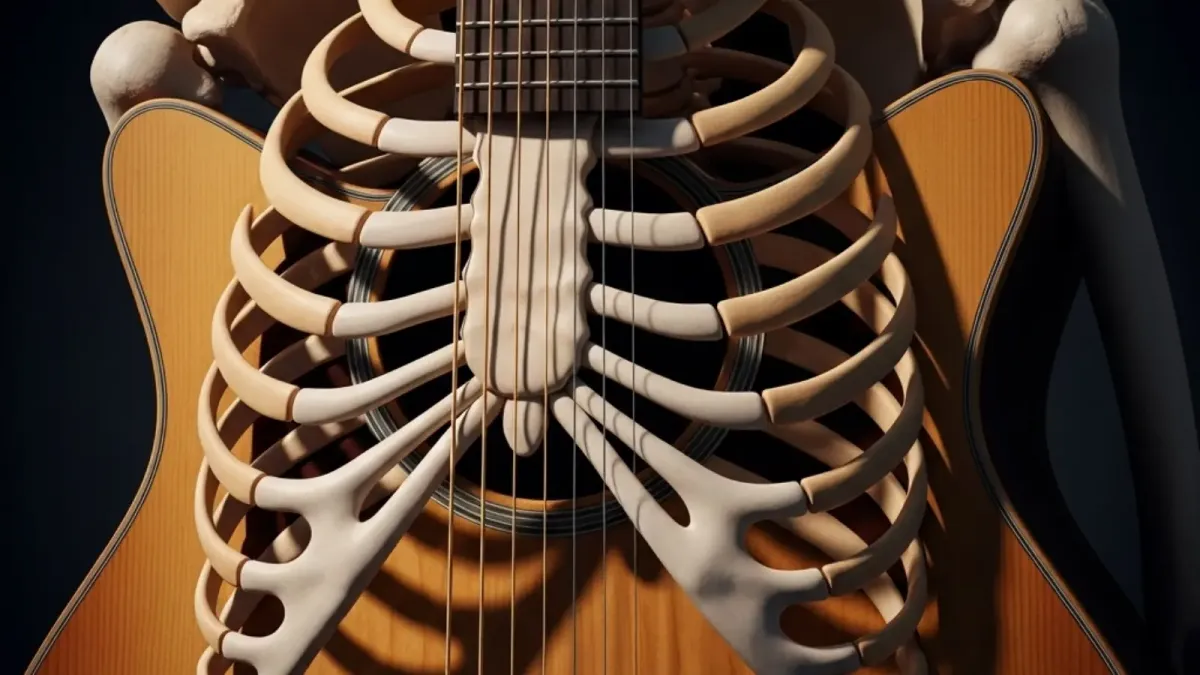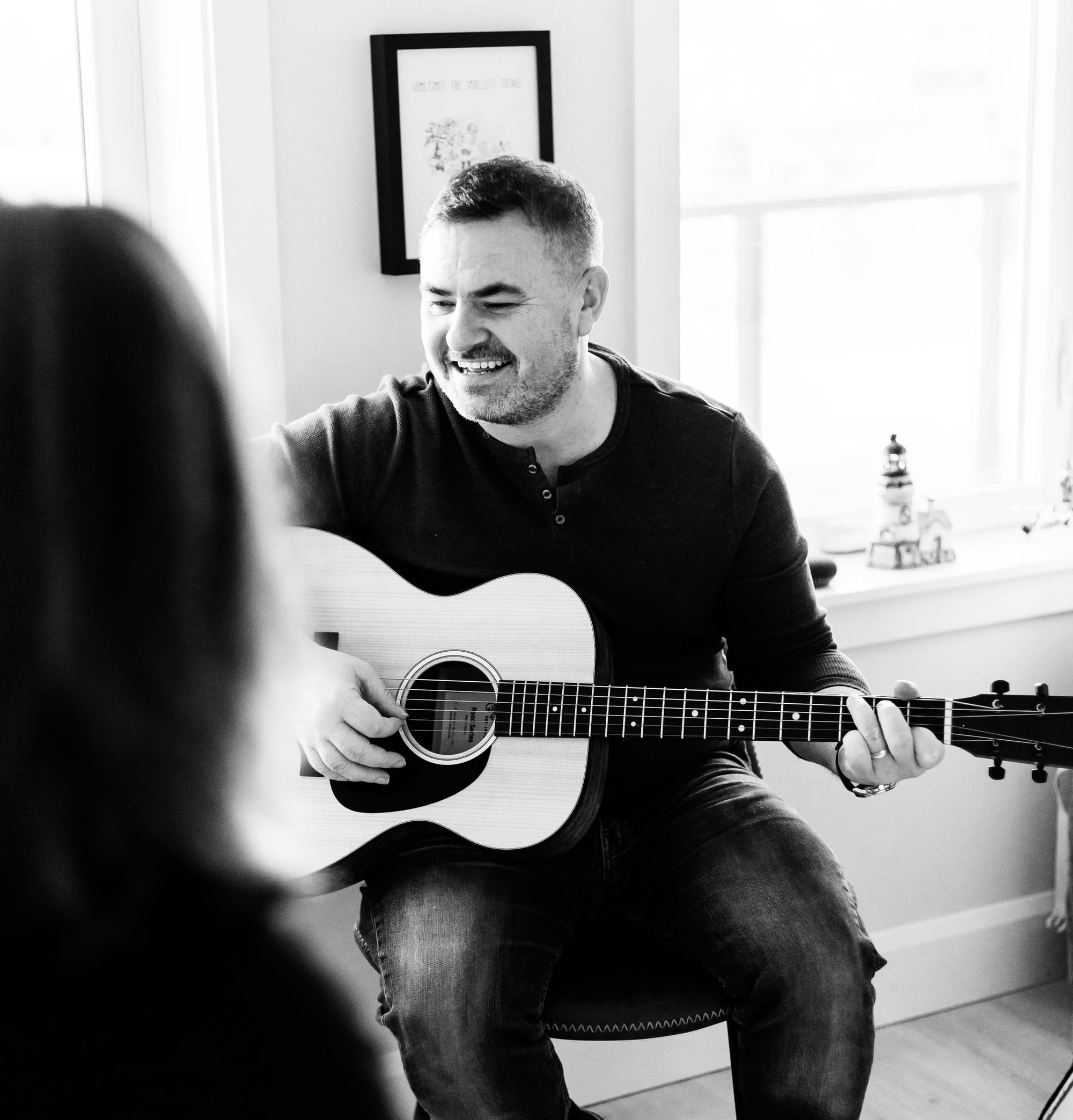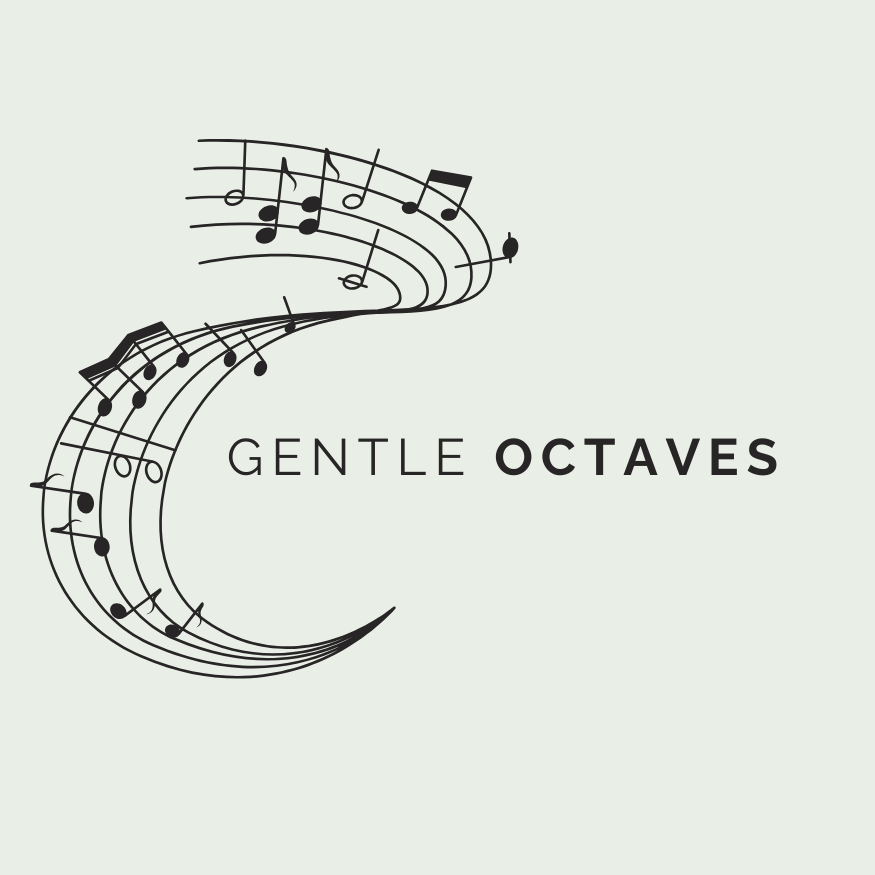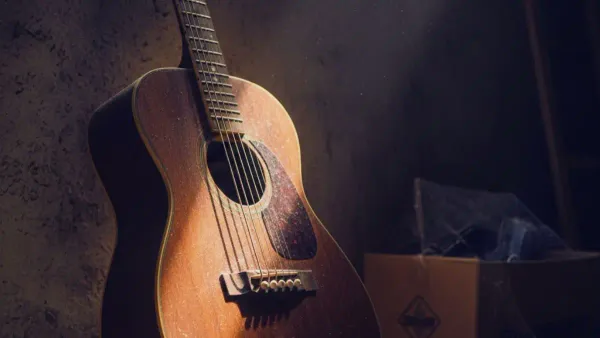Your Body Is an Instrument: How physical awareness transforms your music
What if the reason you're stuck musically has nothing to do with your fingers and everything to do with the tension you're carrying in your shoulders?

I mean, think about it for a second. You're working on that chord change that's been giving you trouble for weeks. You're drilling it over and over. Your fingers know where to go, technically you've got it, but somehow it's still not smooth. Still not flowing. And you're getting frustrated because you should have this by now.
But here's what I noticed over years of working with people: musicians, athletes, people in chronic pain. The problem is almost never where they think it is.
That tight chord change? It's not your fingers. It's sometimes the fact that your shoulders are hiked up around your ears.
It's sometimes the way you're holding your breath when you transition.
Or it's the death grip you've got on the neck because somewhere along the way you learned that tension equals control.
And nobody ever taught you to pay attention to this stuff. Nobody ever said, hey, your body is part of the instrument. How you hold yourself, how you breathe, where you're carrying tension all of that is creating the sound that comes out.
So you keep drilling the technique, ignoring what your body's trying to tell you, and you wonder why you hit a plateau.
I've been there. And I've helped a lot of people work through it. So let me share what I've learned about why physical awareness might be the missing piece that transforms not just how you play, but how you feel when you play.
The Thing Nobody Talks About in Guitar Lessons
When you take guitar lessons, whether it's in person or online or from some YouTube tutorial what do they teach you?
Chord shapes. Finger placement. Strumming patterns. Maybe some theory if you're lucky. All technical stuff. All focused on what your hands are doing.
And look, that's important. I'm not saying technique doesn't matter. But here's what gets left out almost every single time:
Where's the rest of your body while you're doing all this?
I'm serious. What's happening with your shoulders? Is your jaw clenched? Are you even breathing? How's your lower back feeling after 20 minutes? Is your neck craned forward because you're staring at your fretboard?
Nobody asks these questions. But they matter. They matter so much more than people realize.
I worked with people for years as a manual osteopath and trainer who came in thinking they had hand problems: arthritis, tendonitis, just general pain and stiffness and we'd start looking at the whole system, the whole chain, and guess what?
The hands were fine. The hands were just the messengers. The actual problem was happening upstream. Tight shoulders pulling everything forward.
Collapsed posture compressing the ribcage and limiting breath. Tension in the jaw that was traveling all the way down the arm.
Your body's all connected. It's not separate parts doing separate things. It's one integrated system. And when one part's not working well, the whole system compensates.
It finds a way to get the job done. And eventually, something starts screaming for attention.
Usually it's your hands or wrists, because that's where the demand is highest when you're playing guitar.
But treating just the hands is like... I don't know, it's like putting a bandaid on something that needs stitches. You're not getting to the root of it. You're just managing symptoms while the actual problem keeps doing its thing.
What Physical Awareness Actually Means (And Why its Important)
Alright, so when I say "physical awareness," I'm not talking about some mystical mindfulness thing where you need to meditate for an hour before you can pick up your guitar. I mean, if that's your thing, great. But that's not what this is about.
Physical awareness just means: Can you notice what's actually happening in your body while you're playing?
Not what you think should be happening. Not what you're trying to make happen. What's actually going on right now, in real time.
Can you feel if your shoulders are tight?
Can you notice when you're holding your breath?
Do you know when you're gripping the neck harder than you need to?
Can you tell the difference between focused effort and unnecessary tension?
Most people can't. And I don't mean that as a criticism, they're not incapable, they've just never been taught to pay attention this way.
We're so focused on the outcome: play this chord, hit this note, sound like that recording that we completely ignore the process happening in our bodies to get there.
And here's the thing: your body's been trying to tell you stuff this whole time. It's constantly giving you feedback.
But if you're not listening, if you're just pushing through discomfort or ignoring the signals because you think that's what you're supposed to do, you're missing out on the most valuable information you've got.
I remember working with a guy, in his mid-50s, who'd been playing guitar for decades. Great player, technically really solid. But he kept getting this pain in his right shoulder that would flare up after practice sessions.
He'd tried everything: different posture, different guitar strap height, strengthening exercises. Nothing worked.
So I said, okay, just play something for me. Anything. And I'm watching him, not saying anything, just observing.
And within about 30 seconds I see it: every time he goes to strum, his shoulder comes up. Just a little bit. Barely noticeable if you're not looking for it. But it's there.
He's initiating the movement from his shoulder instead of from his arm and wrist. And he's been doing this for probably 30 years.
He had no idea. Absolutely no awareness that this was happening.
And why would he? Nobody ever taught him to notice these things.
Once we brought his attention to it, once he could actually feel what he was doing instead of just going on autopilot, we could start changing the pattern.
And the shoulder pain disappeared within a couple weeks.
That's what physical awareness gives you. It gives you the ability to notice patterns you didn't even know existed. And once you can notice them, you can change them. But you can't change what you can't see or in this case, what you can't feel.
Where Tension Hides (And How to Find It)
So here's where this gets practical. Because it's one thing to say "pay attention to your body," but what exactly are you looking for?
Let me walk you through the 3 common places tension shows up. These are patterns I saw over and over, both in myself and in people I worked with.
The Shoulders
This is the big one. Most people carry tension here without realizing it. Shoulders hiked up, rolled forward, or both.
And when you're playing guitar, this creates problems all the way down the chain.
Tight shoulders limit how freely your arms can move. They compress nerves and blood vessels going to your hands.
They pull your whole upper body out of alignment. And they're exhausting to maintain, even if you don't consciously feel tired.
Next time you're playing, just check: where are your shoulders? Are they relaxed and level, or creeping toward your ears?
Can you consciously drop them and notice how that changes how your hands feel?
The Jaw and Face
Yeah, I know, seems unrelated to guitar. But tension in your jaw travels. Your jaw connects to your neck, which connects to your shoulders, which connects to your arms. It's all one system.
Plus, a clenched jaw usually means you're holding tension throughout your whole body. It's like an indicator light.
Try this: play something. Anything. Now consciously relax your jaw. Let your teeth separate slightly.
Let your tongue rest soft. Soften your forehead and the muscles around your eyes. Notice if anything shifts in your hands or arms.
The Grip
Most people grip the guitar neck way harder than they need to. Death grip. White knuckles. All that unnecessary tension in the hands and forearms.
Why? Usually because they think they need to hold tight to maintain control. Or they're anxious about hitting wrong notes. Or they've just always done it that way.
But here's the thing: you only need the minimum pressure to fret the note cleanly. Anything beyond that is wasted energy and strain.
And over time, that excessive grip leads to fatigue.
Practice Ritual: Body-Awareness Pre‑Session Reset
Awareness is the first step. Use this ritual before every practice or performance. Even 3 minutes will shift your baseline.
- Align & Ground
Sit or stand. Stack your head over your heart, heart over hips. Feel gravity pulling downward — root your sit bones or feet. - Shoulder Reset
Shrug shoulders up, roll them back, then release downward. Do this twice, slowly. - Vagus Breath
Inhale through your nose for 4 counts → pause 1 → exhale through your mouth for 6 counts. Do this 3 times. - Hand & Finger Scan
Gently open and close your fists. Move fingers slowly. Notice stiffness, tension, or “dead spots.” - Foot-Contact Check
Feel how your feet contact the ground (or your seat). Are they gripping, pushing, floating? Let them soften and widen your base of support.
As you go through this, notice what wants to “win”: tension, misalignment, fading awareness.
How This Long-Term Helps Your Music
- Better resilience — Your body won’t wear out as fast under stress.
- More expressive control — Less “glitch” from hidden tension.
- Greater sustainability — You’ll stay playing longer, with less injury.
- Sharper listening — You’ll “hear” what’s happening in your body as much as with your ears.
This isn’t about perfection; it’s about deeper feedback loops between body and musical intention.
Your Invitation
Or ready for the full deep dive?? Check out my Full Book :

F.P. O’Connor
F.P. O'Connor is a Musician and Movement Specialist whose work is informed by extensive training in Manual Osteopathy, Psychology, and Strength Coaching.
He is the founder of Gentle Octaves, helping adult players develop practical, science-based systems for ease, control, and long-term playing confidence.
Release → Reset → Rebuild™ your sound
FAQ
Q: Do I need to practice this ritual daily?
Ideally yes, but even 2–3 times per week builds meaningful awareness.
Daily practice helps you notice tension patterns earlier, before they turn into compensation or pain. That said, consistency matters more than frequency. Using the ritual before practice, gigs, or whenever tension creeps in is often enough to sharpen body awareness over time.
If you start catching tension sooner than you used to, it’s working.
Q: What if something “clicks” or hurts during the reset?
That’s feedback, not failure. Clicks, resistance, or discomfort are signals that a joint or tissue is reaching its current limit.
Slow that movement down, stay out of painful ranges, and keep things gentle. Forcing through sensations usually teaches the body to guard, not release.
If easing off reduces the sensation, you’ve found the right boundary.
Q: Will this replace my technical practice?
No it supports it.
This work tunes your body so your technique can function more easily. When your body is aligned and listening, technical practice becomes more efficient instead of feeling like a fight. Think of it as tuning the instrument before playing the music.
If technique feels easier after the ritual, it’s doing its job.
Science & Sources:
Farley, Christina, "Body Consciousness: The Effects of Posture on Musicians’ Performance Anxiety" (2017). 2017 Awards for Excellence in Student Research and Creative Activity – Documents. 3. https://thekeep.eiu.edu/lib_awards_2017_docs/3
Eastman School Of Music (2015). Body mapping for musicians: What every musician needs to know about the body. https://iml.esm.rochester.edu/polyphonic-archive/article/body-mapping-what-every-musician-needs-to-know-about-the-body/index.html
Toner, J., Jones, L., & Moran, A. (2016). Bodily crises in skilled performance considering the need for artistic habit. Performance Enhancement & Health, 4(1–2), 50–57.





